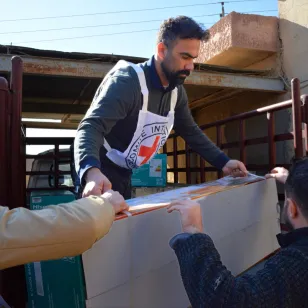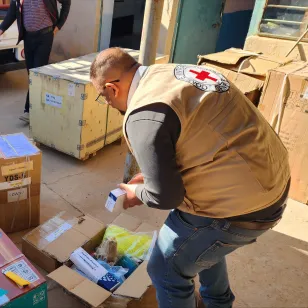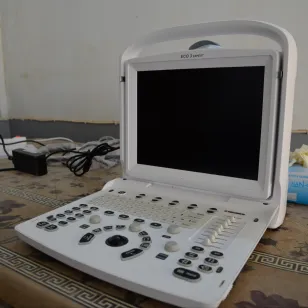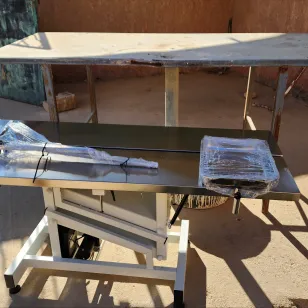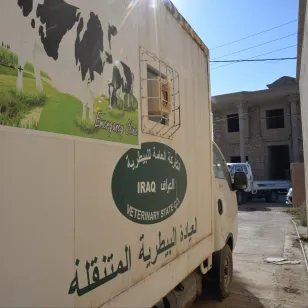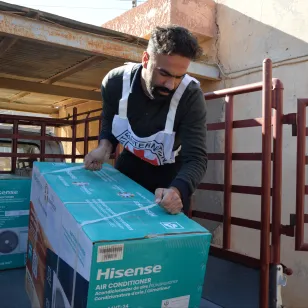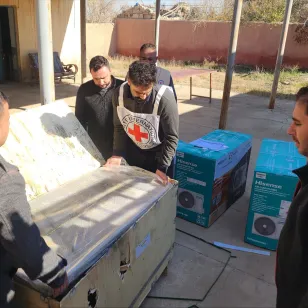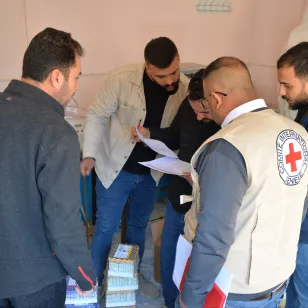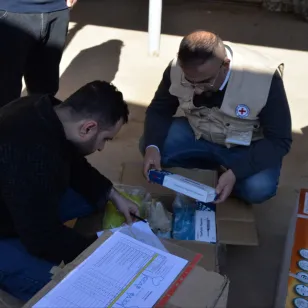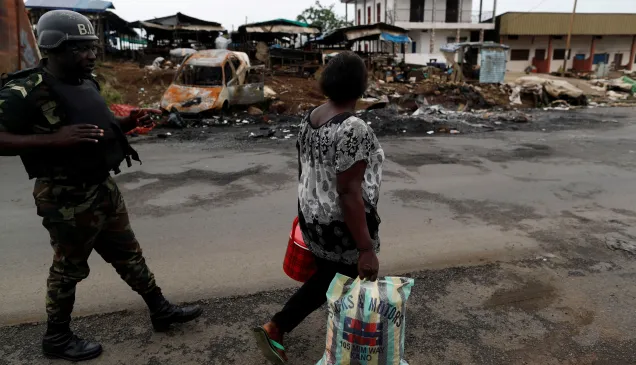Iraq: Restoring Livelihoods That War Left in Ruins
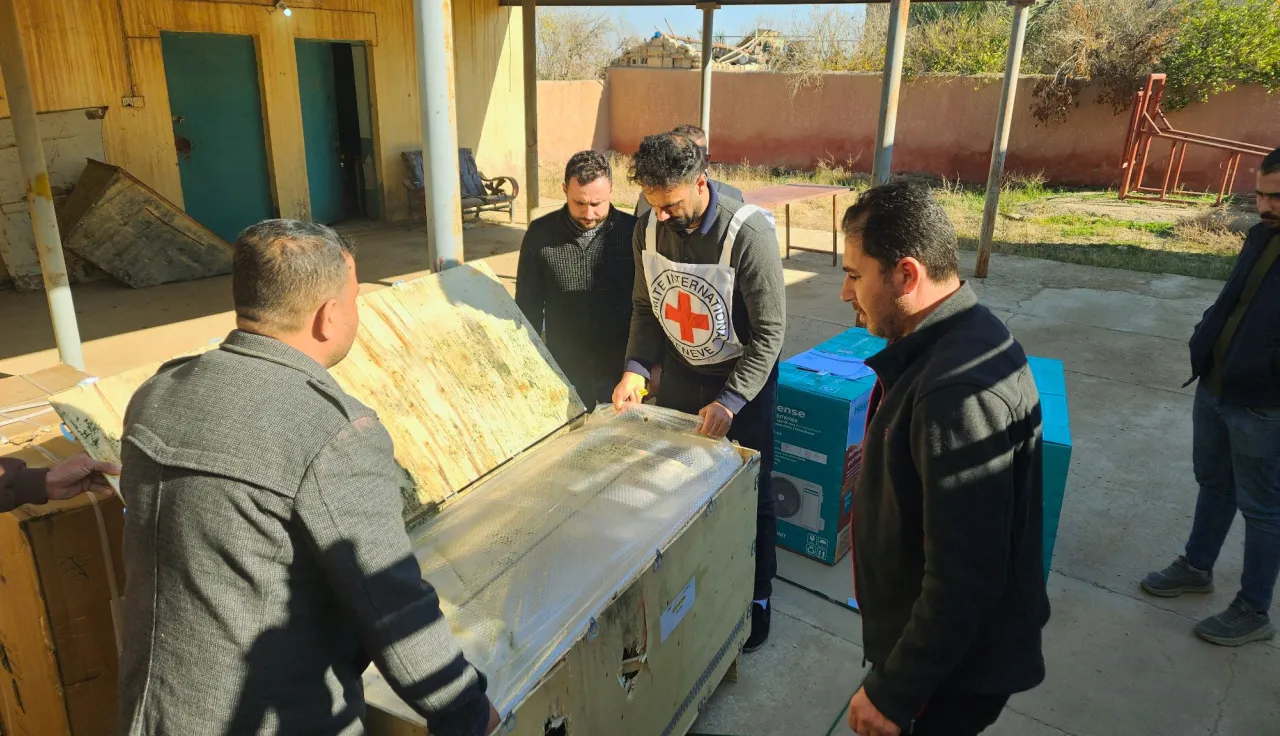
Conflicts leave scars on people—and on communities’ economic and social fabrics. Previous armed conflicts across Iraq have disrupted livelihoods, crippling local businesses, and infrastructure.
In Anbar governorate, one of the most affected areas across Iraq, essential sectors such as agriculture and commerce have been hit hard. Critical institutions like the veterinary clinic in Rawa district were severely affected, leaving farmers without access to essential animal care services.
Impact of War on Anbar
Livestock farmers, poultry breeders, and fish producers in Anbar governorate continue to reel from the far-reaching consequences of the 2014-2017 conflict, such as low purchasing power and lack of economic opportunities.
Veterinary services are now more crucial than ever—not just for maintaining the animal health, but also for revitalizing local economies and creating income opportunities for conflict-affected communities.
Rawa, situated approximately 320 km from Baghdad on the north bank of the Euphrates River, has long been a hub for livestock farmers and small producers. However, during the recent armed conflict, the veterinary clinic was significantly affected due to hostilities, rendering it unable to provide even basic services to local communities. Consequently, over 2,000 local farmers and breeders were economically impacted.
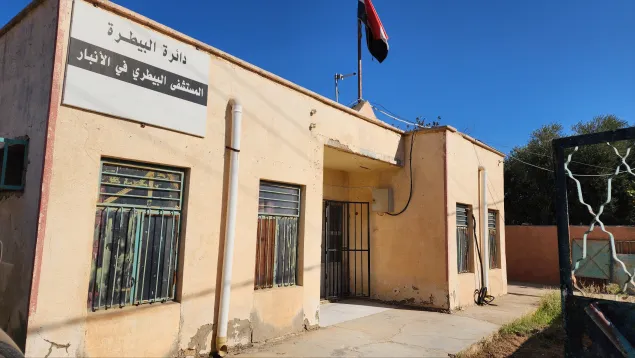
Rawa Veterinary Clinic in West Anbar
In response, the ICRC provided crucial support to the facility, supplying essential equipment such as portable ultrasound scanners, surgical tools, laboratory instruments, a hydraulic examination table, and a solar-powered refrigerator – critical for mitigating the effects of unstable electricity. This assistance was vital for the facility in guaranteeing improved animal healthcare, disease prevention, and overall animal welfare.
Field Insights and Testimonials
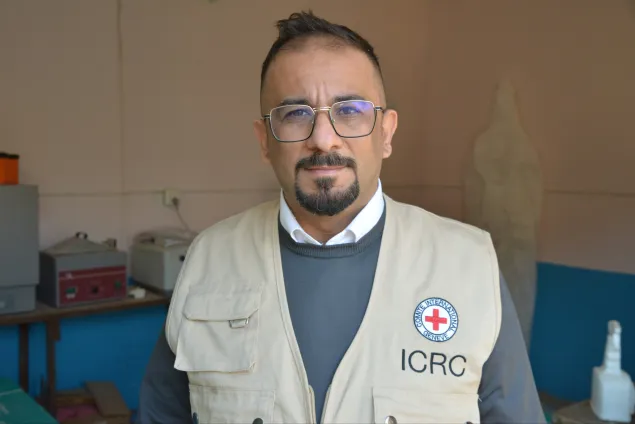
Ahmed Sattar - Economic Security Field Officer
Sattar pointed out that, in 2024, the ICRC conducted a comprehensive field assessment of veterinary institutions throughout Anbar, focusing particularly on the western regions, where returnees are still resettling.
It was seen that in addition to the impact on Rawa veterinary clinic, in Al-Qaim district, the local veterinary clinic was completely destroyed during military operations. Today, the veterinary team in Al-Qaim operates from a temporary office, limited to administrative tasks—highlighting the enduring impact of conflict on essential services.
Prior to that, eastern Anbar received ICRC support in 2023, including assistance to Anbar Veterinary Hospital in Ramadi and Faculty of Veterinary Medicine - Fallujah University.
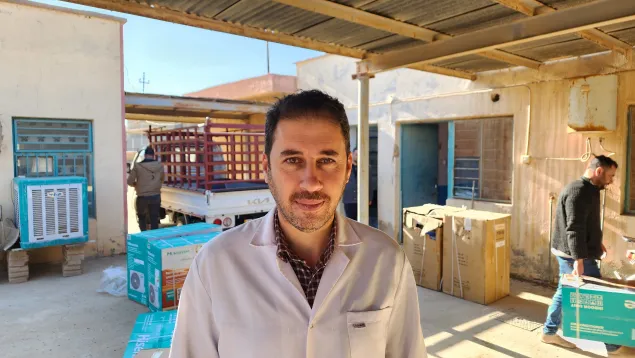
Dr. Marwan Mahdi Abdulghafour - Head Veterinarian at Rawa Clinic
He added that the clinic manages roughly 8,000 tons of white chickens, 1,500 tons of cattle, and many sheep annually—figures that underscore the clinic’s pivotal role.
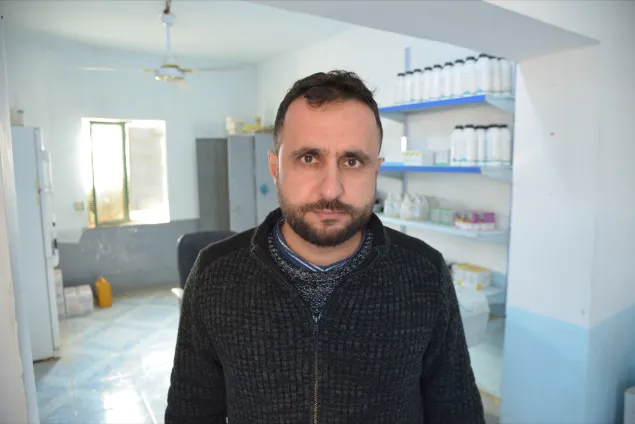
Dr. Osama Fayhan Salloum - Veterinarian at Rawa Clinic
Dr. Osama also emphasized that Rawa’s agricultural landscape is evolving, with poultry remaining dominant, followed by cattle and sheep, while more households now keep pets—a trend emerging after the conflict.
Improving Livelihoods for a Sustainable Economy
Rawa’s veterinary clinic is part of the larger Anbar Veterinary Hospital network under Baghdad’s General Veterinary Directorate. During the armed clashes, Rawa clinic was affected, while in nearby Al-Qaim the local facility was completely destroyed—leaving a critical void in veterinary services.
Despite these challenges, the ICRC’s intervention is a vital step toward restoring the region’s agricultural livelihoods. As Dr. Marwan puts it: “This support is more than just equipment—it’s a sign of hope and a chance for us to rebuild and improve our services for the community.”
Beyond restoring services, these efforts contribute to a more resilient agricultural sector, ensuring sustainable livelihoods for thousands of people in western Iraq.

